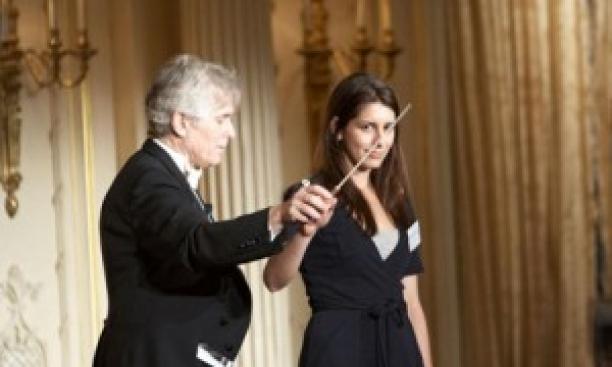

For nearly two decades, conductor Roger Nierenberg ’69 has used examples from orchestral music to illustrate principles of organizational dynamics that apply in other contexts. Hundreds of companies, in industries ranging from health care to finance, have invited him to conduct his interactive Music Paradigm seminars, which feature live orchestra rehearsals. And Nierenberg continues to find new fans — including music critic James R. Oestreich, who recently reviewed a Music Paradigm session in The New York Times.
Nierenberg, meeting with nursing directors at NewYork-Presbyterian Hospital, “was making real music and making good sense,” Oestreich wrote, when the conductor began his rehearsal with string players from the Metropolitan Opera Orchestra. He also modeled dysfunctional dynamics, acting aloof or micromanaging, before finishing with a performance that illustrated best practices. A conversation with the nursing directors followed.
Nierenberg, who outlined his program in the 2009 book Maestro, was deeply engaged in music by the time he began his undergraduate years at Princeton, and during his time on campus, he was active in the University Orchestra, the Glee Club, the Opera Club, and the Princeton Chamber Singers. He served as music director of the Stamford (Conn.) Symphony and the Jacksonville Symphony in the 1980s and ’90s before turning his attention to the Music Paradigm program. “I found, somewhat to my astonishment, that it was a very potent business tool,” Nierenberg told PAW in 2002. “It grew slowly, by tiny increments. I, and others, began to discover the power of music as metaphor.”
